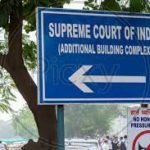
NDPS: Non Compliance of Standing order : Possibility of tampering – Acquittal
Appeal of several individuals against their conviction under the Narcotic Drugs and Psychotropic Substances Act, 1985 (NDPS Act). The appellants, originally convicted by the Metropolitan Sessions Judge and whose conviction was largely upheld by the High Court of Telangana, argue that the investigating officer committed significant proceduralviolations regarding the seizure and storage of contraband, specifically 600 kgs of dry ganja. The Supreme Court finds merit in these arguments, noting non-compliance with Section 52A of the NDPS Act and Standing Order No. 1/89, which dictates procedures for handling seized contraband. Ultimately, the court concludes that the possibility of tampering with the evidence cannot be ruled out due to the improper handling and storage, leading them to grant the appellants the benefit of the doubt and overturn their convictions. Narcotic Drugs









